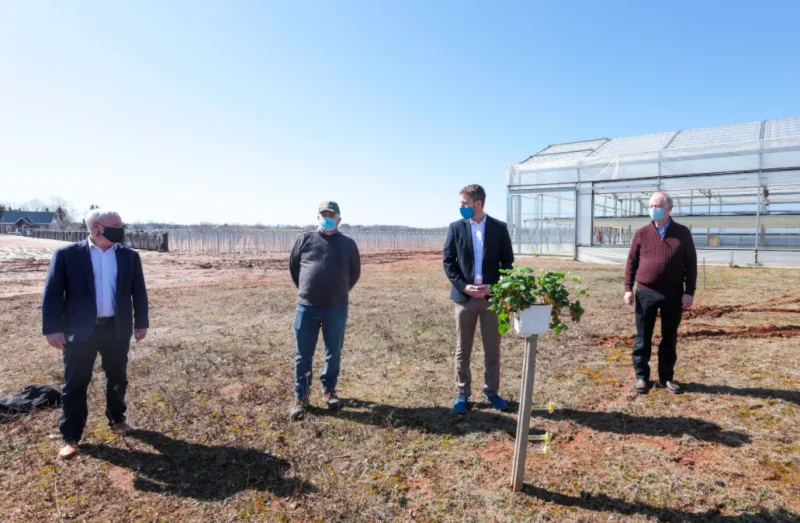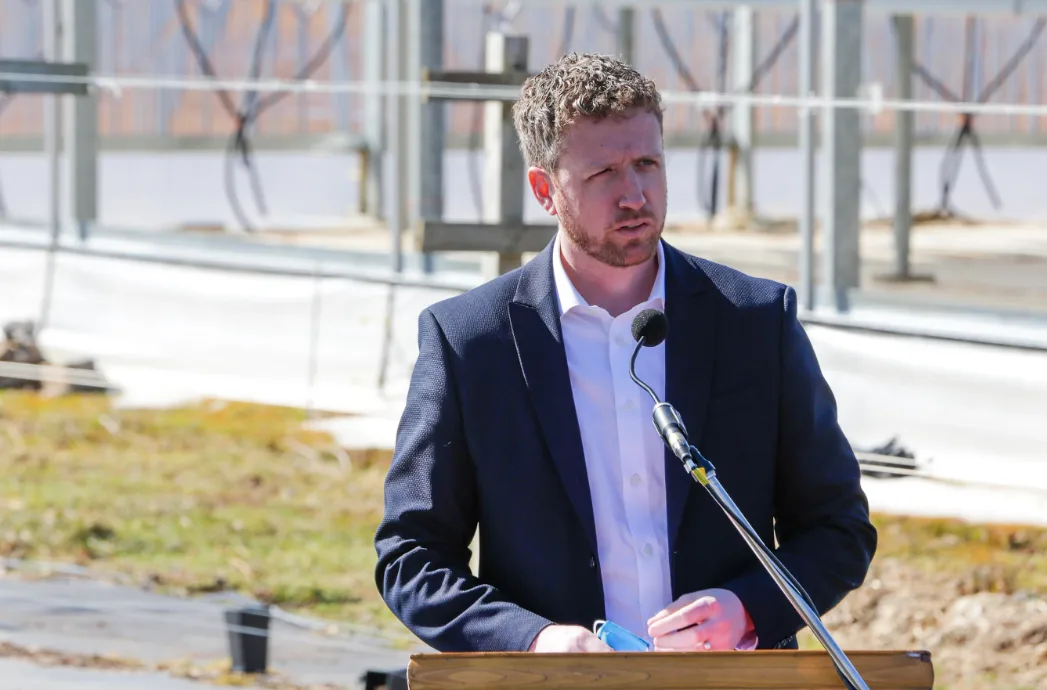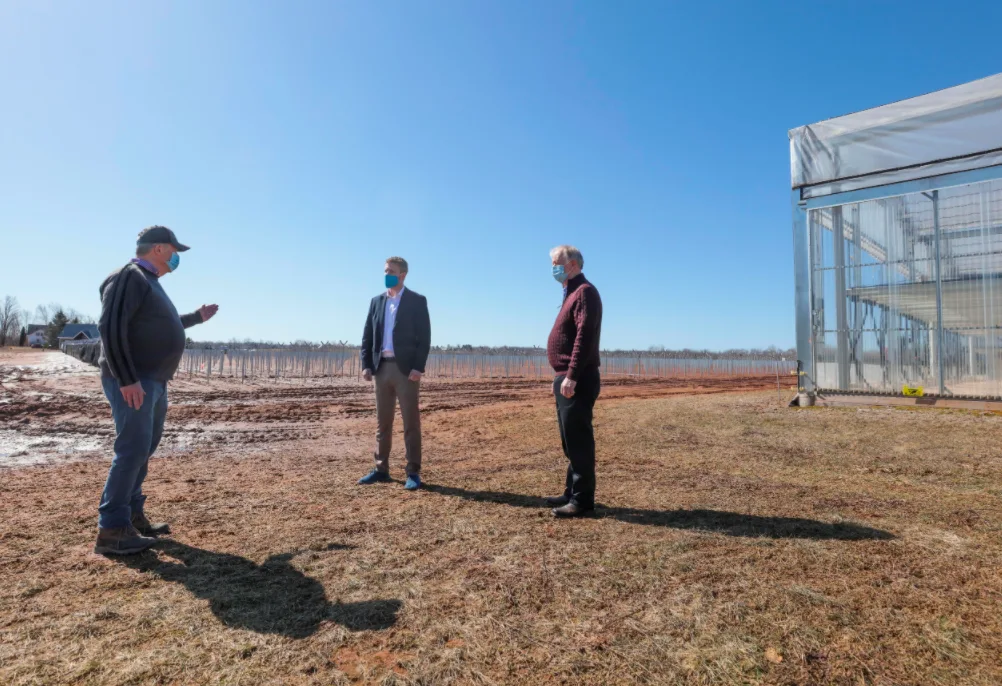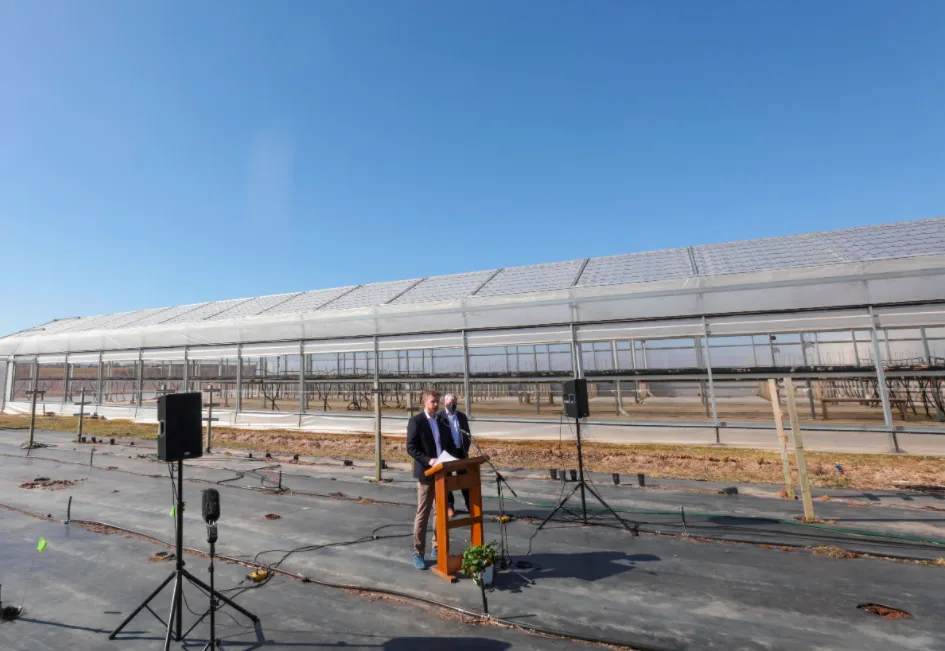
Nova Scotia to invest $5M in year-round food production, emission reductions
Nova Scotia’s Agriculture Clean Technology Program aims to support the adoption of clean technologies to reduce emissions and improve food security in the province.
At Vital Berry farms in Kings County, Nova Scotia, Premier Iain Rankin announced an investment of five million dollars in projects over a two-year period to boost the province's year-round food production and greenhouse gas emissions.
During his recent leadership race, Rankin often spoke about food security, which is the ability to rely on sufficient, affordable nutritious food. Rankin hopes that this investment reduces the amount of food the province needs to import.
“It's a win-win because we're able to either reduce greenhouse gas emissions here, or we're displacing imports coming in that are using a lot more greenhouse gas emissions for travelling by bringing products into the province,” Rankin said at the announcement.

Premier Ian Rankin. Credit: Province of Nova Scotia
The farmland in Canning is currently being built up into greenhouses that will be full of strawberries, raspberries, and blackberries this year, marking a change in technique that will produce nearly three times the amount of fruit in a square metre than in the past.
Farmer Earl Kidston says “the changing weather is a real challenge” and that new techniques are needed to maintain the amount of crops that are grown, as well as their quality. Kidston, who has been farming for 50 years, lost a third of his high bush blueberry crop when Dorian swept through the region in 2019. He says it's not just hurricanes that are a growing concern.
"The winds that have been coming in from the south and the southwest have been bringing in viruses, and they've been bringing in insects we haven't had to think about before."

Farmer Earl Kidston talks to Premier Iain Rankin, and Agriculture Minister Keith Colwell. Credit: Province of Nova Scotia
With the controlled atmosphere a greenhouse offers, Kidston says he can plan for extreme weather events and start planting earlier and harvest later. His current facility used for growing strawberries is three and a half years old and there are already plans for expansion.
"Depending on the direction of the wind, depending on the temperature, it'll open and close some. And the other thing we don't think of in Nova Scotia is excessive heat. That's not something that we tend to think of, but the varieties that are bred for the Northern Hemisphere can only handle so much heat too."
Controlling the movement of air is one way the crop can be kept cool to keep the yield up. Three or four degrees Celsius can make a big difference to a strawberry plant trying to flower and get pollinated.

Premier Iain Rankin announces $5 million over two years in projects that invest in clean technologies in agriculture today at Dykeview Farms LtdFarmer Earl Kidston talks to Premier Iain Rankin, and Agriculture Minister Keith Colwell. Credit: Province of Nova Scotia
Agriculture Minister Keith Colwell was also on hand for the announcement and noted how the pandemic helped him better understand the importance of strengthening food security.
"It means we can have year round crops that we didn't have before and make sure when you go to the stores it's not a product of Mexico or the U.S. or whatever the case may be,” says Colwell. He says when major beef chicken and pork processors began to shut down due to COVID-19 outbreaks in 2020, it was a big wake up call.
"It was real, it did happen, unfortunately we didn't want to talk about it at the time for obvious reasons because people would have panicked and bought everything off the shelves, and then there wouldn't have been any food for people that didn't have the resources to do that," Colewell remarked.
Nova Scotia’s Agriculture Clean Technology Program is aimed at supporting small and medium projects to help strengthen food security.
Thumbnail credit: Province of Nova Scotia












